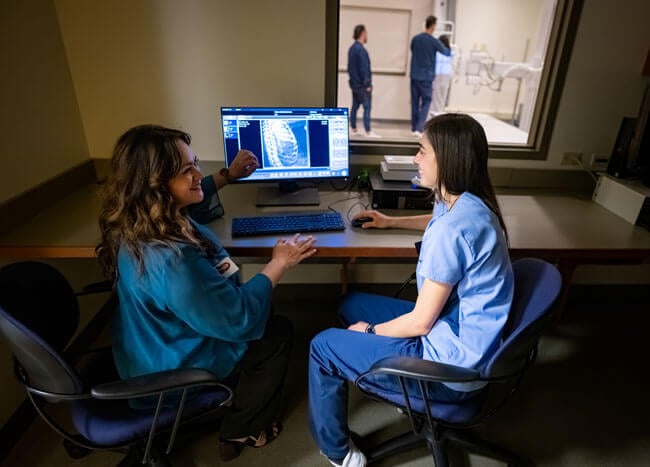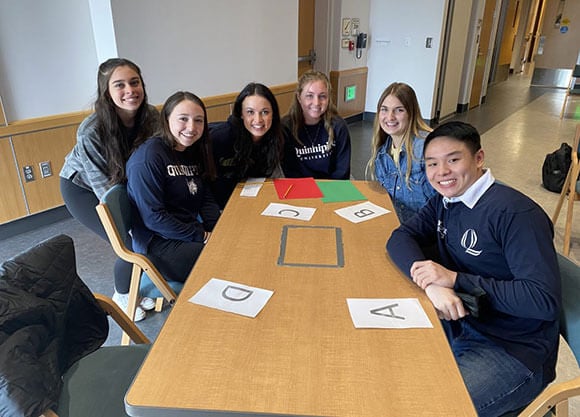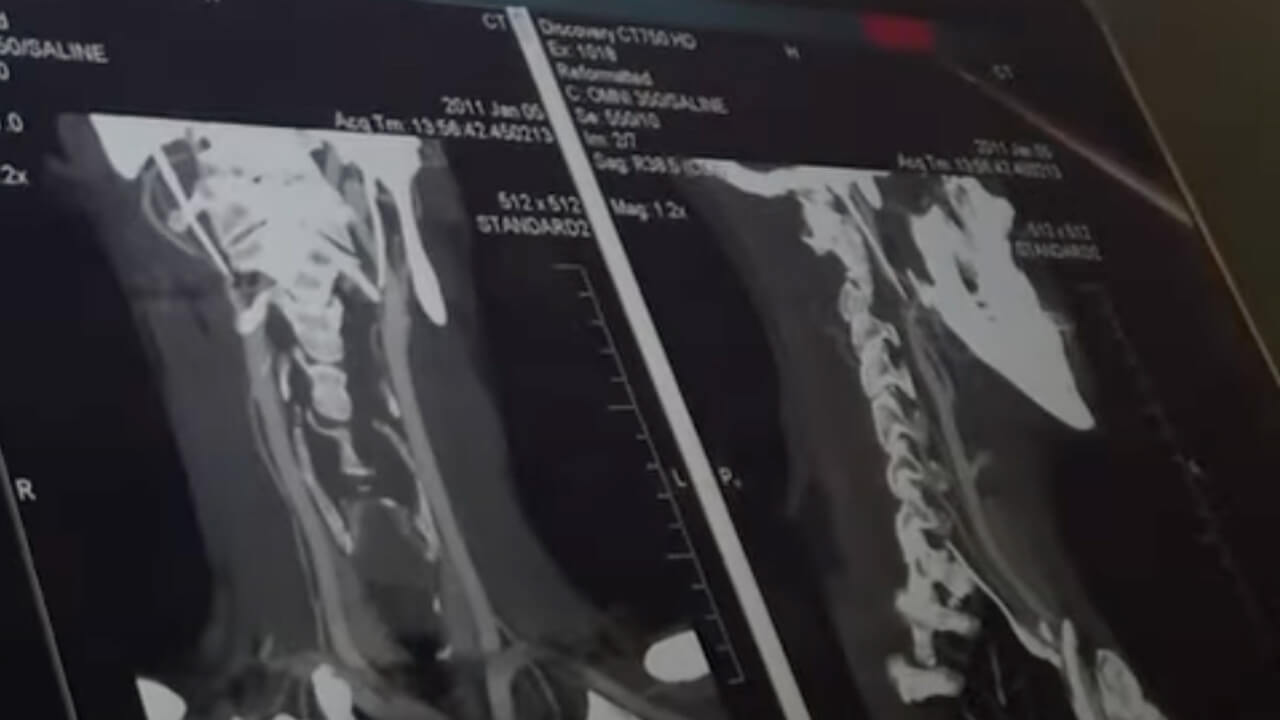
As vital members of the diagnostic healthcare team, radiologic technologists use sophisticated medical imaging technology and examination practices to detect a range of injuries and illnesses, ensuring accurate patient diagnoses and treatments.


As vital members of the diagnostic healthcare team, radiologic technologists use sophisticated medical imaging technology and examination practices to detect a range of injuries and illnesses, ensuring accurate patient diagnoses and treatments.

As a radiographer or radiologic technologist, you’ll provide physicians and other caregivers with a literal window into a patient’s health, revealing everything from common bone fractures and pneumonia to the presence of COPD and various cancers. You’ll leverage practical knowledge of radiology and radiation safety as well as physics, anatomy and pathology. Our program builds this knowledge through a combination of classroom, lab and clinical experiences as we teach you to become efficient and qualified entry-level technologists.
Our program, accredited by the Joint Review Committee on Education in Radiologic Technology, blends a classroom and lab approach. This enables you to apply your developing knowledge and skills to the care of real patients in clinical settings under the supervision of qualified technologists. The expertise you’ll gain prepares you for employment upon graduation as a radiographer in hospitals, specialty clinics and private practices.
Students are admitted to the 3-year BS in Radiologic Sciences program. In your final year, you'll be eligible to sit for the American Registry of Radiologic Technologists certification exam, a necessity for licensure in Connecticut and most states. Once licensed, your options are open for starting your career or applying to a graduate program. Quinnipiac offers an MHS in Advanced Medical Imaging and Leadership for those who wish to pursue a more advanced degree and gain a competitive edge in the healthcare industry.

With an abundance of career-focused information and resources, the career advisers within the School of Health Sciences support students as they expand their professional networks and attract the attention of prestigious employers.

The Radiologic Sciences program is accredited by the Joint Review Committee on Education in Radiologic Technology (JRCERT).
20 North Wacker Drive, Suite 2850
Chicago, IL 60606-3182
312-704-5300
mail@jrcert.org
The program’s current accreditation award is 8 years and the next review is scheduled for November 2027. General program accreditation information and the current accreditation award letter can be found at https://www.jrcert.org/programs/quinnipiac-university/
The number of students who pass, on the first attempt, the American Registry of Radiologic Technologists (ARRT) certification examination, or an unrestricted state licensing examination, compared with the number of graduates who take the examination within six months of graduation. The five-year average benchmark established by the JRCERT is 75%.
| Year | Results |
| 2022 | 80% (16/20) |
| 2021 | 82% (18/22) |
| 2020 | 91% (21/23) |
| 2019 | 96% (27/28) |
| 2018 | 92% (23/25) |
|
5-Year Average Program Results JRCERT Benchmark |
89% (105/118) 75% |
The number of graduates employed in the radiologic sciences compared to the number of graduates actively seeking employment in the radiologic sciences within twelve months of graduating. The five-year average benchmark established by the JRCERT is 75%.
| Year | Results |
| 2022 | 100% (12/12) |
| 2021 | 100% (8/8) |
| 2020 | 100% (17/17) |
| 2019 | 100% (12/12) |
| 2018 | 100% (12/12) |
|
5-Year Average Program Results JRCERT Benchmark |
100% (56/56) 75% |
The number of students who complete the program within the stated program length. The annual benchmark established by the program is 75%.
| Year | Results |
|
2022 Program Completion Rate Program Benchmark |
95.65% (22/23) 75% |
The BS in Radiologic Sciences is a rigorous program that places specific demands on its students. As stated in the mission of the program, graduates of the program will meet the needs of the community as efficient and highly qualified professionals.
The technical qualifications set forth by the American Registry of Radiologic Technologists combined with the program’s views provides a guide to the essential qualities necessary to pursue a career in radiologic sciences as well as meet the expectations of the program’s accrediting body (Joint Review Committee on Education of Radiologic Technologists (JRCERT).
Students in the program will be required to verify their understanding and compliance with the technical standards, or their belief that with reasonable accommodations these standards can be met, through reading, signing and returning the form to the program director.
In addition, students are made aware of the program’s progression policy, health requirements to attend clinical internships and fees incurred. More detailed information can be found by downloading the PDF below.
Our undergraduate admissions counselors are here to answer any questions you may have and help you navigate the application process.